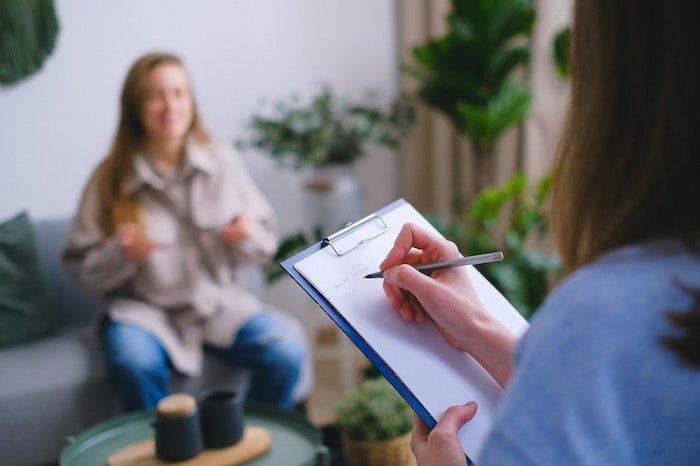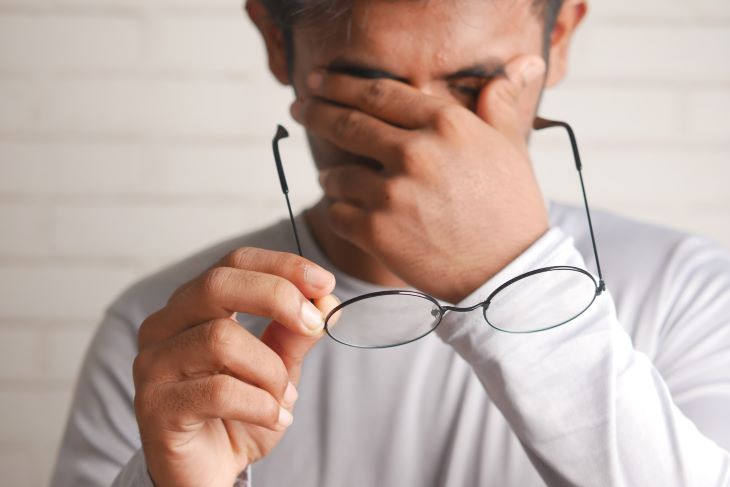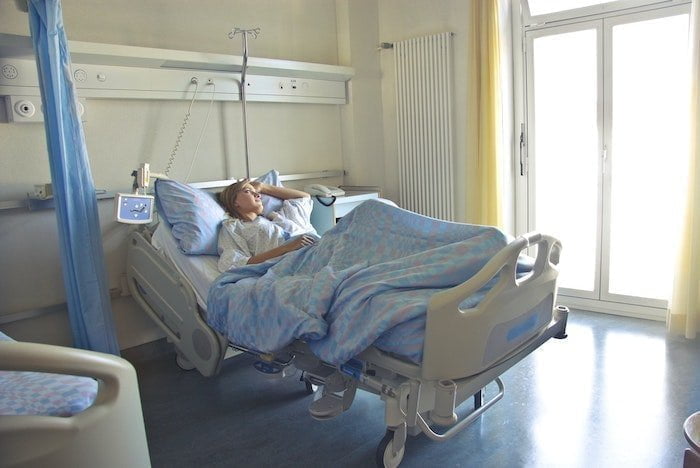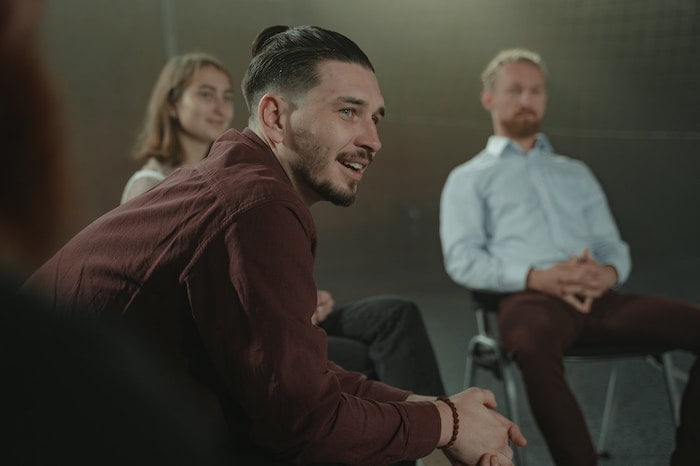Ativan Addiction
Quick Links for Ativan Addiction
- Am I addicted to Ativan?
- Ativan Addiction: What is Ativan prescribed for?
- Ativan Addiction: How long should I take Ativan for?
- Ativan Addiction: What does Ativan do?
- Ativan Addiction: What are the effects of Ativan?
- What happens when people combine Ativan with other drugs?
- Treatment for Ativan addiction
- References for Ativan addiction
Ativan is a highly addictive benzodiazepine.
Benzodiazepines (a family of drugs that also includes Valium and Xanax) are a form of medication used to treat anxiety and insomnia.
Ativan – also known as stupefying, goofballs and heavenly blues – should only ever be taken for a short period of time, and should not be prescribed for anyone who is at risk of addiction.
This includes people with serious mental health problems, people with a history of substance use, and people with a history of addiction in their families.
Though effective at treating insomnia and anxiety, Ativan can lead to serious addiction.
Am I addicted to Ativan?

Two people discussing Ativan addiction
If you have been using Ativan, either to treat a medical/mental health condition, or for other reasons, and you are worried that you might be addicted, take a look at the checklist below.
If any of these sound familiar [1] to you then you may want to consider getting treatment.
- I often break off social engagements in order to take Ativan.
- I have had problems with my relationships – either romantic or non-romantic – due to Ativan.
- Responsibilities are becoming harder for me to carry out due to my Ativan use.
- I put myself in risky situations in order to take or purchase Ativan.
- I no longer care about things I used to; all that matters to me now is taking Ativan.
- More often than not, I spend time on my own.
- Money has become more of a problem due to my Ativan habit.
- I now need to take more Ativan just to get the same high – I think I’ve built up a tolerance.
- I have tried to stop taking Ativan but have failed.
- The withdrawal symptoms when I stop taking Ativan for a little while are so bad that I can’t face quitting.
Ativan Addiction: What is Ativan prescribed for?

Patient speaking with an addiction worker about Ativan addiction
Ativan, also known as lorazepam, is prescribed for a variety of conditions including insomnia, anxiety and alcohol withdrawal symptoms.
It is a long-acting benzodiazepine, which means that its effects take longer to wear off, and you do not need to take it as often as short-acting benzodiazepines such as Halcion.
Ativan Addiction: How long should I take Ativan for?
Due to its addictive nature, Ativan is generally prescribed for short periods.
Four months is typically the maximum length of time for which this medication is prescribed.
Any longer risks causing a physical dependence, which can then turn into a full-blown addiction.
Ativan Addiction: What does Ativan do?

Addiction specialist taking notes about Ativan addiction
Scientifically speaking, Ativan has the same effect as all benzodiazepines, which is to say that it stops the production of GABA (a neurotransmitter) [2] in order to slow down the workings of the brain.
This helps to reduce anxiety, encourage sleep, and minimise alcohol withdrawal symptoms.
Ativan Addiction: How is Ativan taken?
Ativan normally comes as a tablet, although it can also be found as a colourless liquid.
When taken as a tablet, Ativan is consumed orally. In liquid form Ativan can be taken intravenously, although this should only be done under the supervision of a doctor due to the risk of overdose and abuse.
Ativan Addiction: What are the effects of Ativan?

Person suffering from the effects of Ativan addiction
Ativan’s main effect is to reduce feelings of anxiety by restricting the production of the GABA neurotransmitter. In large doses, Ativan can also give the user a high, as well as feelings of intense calm.
Other effects include drowsiness and relaxed muscles.
Due to the effects listed above, Ativan has a high potential for abuse.
Abuse of Ativan can involve taking more of the drug than prescribed, taking it more often, or taking it for a longer period.
Taking Ativan without a prescription would also qualify as abuse.
Ativan also carries a risk of overdose, especially if taken in conjunction with other drugs, such as alcohol.
This risk is higher because Ativan is a prescription drug, and people sometimes do not realise how dangerous it can be.
The most common scenario for an Ativan overdose is when someone takes Ativan as well as another drug, and their body has an adverse reaction.
In case of an Ativan overdose, [3] you should watch out for these signs:
- Coma
- Low energy
- Lack of control over body movements
- Low blood pressure
- Mental confusion
- Muscle weakness
- Passing out
- Slow breathing
- Slurred speech
It is important to be able to recognise these signs of an Ativan overdose because Ativan overdoses can be fatal. [4]
How long does Ativan take to have an effect?
Ativan normally kicks in between 45 minutes and 2 hours after it is first taken. It stays in the system for around 20-100 hours after it is consumed.
In comparison with other benzos, Ativan is ‘intermediate-acting benzo.’
Long-acting benzos, such as Valium, can stay in the system for up to 5 days.
Short-acting benzos, such as Halcion, only stay in the system for between 2 and 4 hours.
What happens when people combine Ativan with other drugs?

Person in a hospital bed suffering from Ativan overdose
Ativan is a sedative.
Some drug users like to use it in combination with other drugs, either to exacerbate the effects of those drugs or to balance them out.
This can lead to a higher risk of overdose, so it is important to be aware of the dangers of mixing Ativan and other drugs.
We’ve listed some of the main drugs which Ativan is combined with below:
- Alcohol – Unknowingly or knowingly, people often mix Ativan with alcohol. Some choose to do so because they want to increase the high they get from the drug, whilst others will take Ativan as medication whilst still drinking alcohol without giving any thought to what the combination of alcohol and Ativan might do to them. Alcohol is a depressant, and, when mixed with Ativan, it can lead to a powerful high. It can also cause the respiratory system to shut down, depress the nervous system, and (in severe cases) lead to death.
- Methadone – Methadone is an opiate painkiller that is sometimes used to help wean people off heroin. Similar to Ativan, it depresses the central nervous system (CNS). By combining two CNS depressants, drug users put themselves at risk of overdose, since the respiratory system may stop working.
- Amphetamines – Sometimes users of amphetamines such as speed take drugs like Ativan to counteract the stimulant properties of amphetamines. This might happen when someone on speed feels like they are uncomfortably high and need something to calm them down. One risk with mixing Ativan and amphetamines is that when you are already high on amphetamines, it becomes more difficult to judge how much Ativan you should take. This can easily lead to overdose.
- Cocaine – Much like amphetamines, cocaine is a stimulant. People sometimes take Ativan to help them come down from a cocaine high. The same risk applies: you can take too much Ativan by mistake and end up overdosing.
Treatment for Ativan addiction

Support group for Ativan addiction
There are many different options for Ativan treatment, including inpatient rehab, outpatient rehab, therapy, detox, support groups and more.
The right treatment for each individual will depend on the length and severity of the addiction.
If you have an addiction to Ativan, we recommend you start exploring treatment options as soon as possible.
The earlier you begin treatment, the sooner you can get your life back to normal.
For free expert advice on tackling Ativan addiction, talk to our team today on 0800 326 5559.
References for Ativan Addiction
[1] https://www.verywellmind.com/side-effects-of-ativan-lorazepam-4775729
[2] https://www.ncbi.nlm.nih.gov/pmc/articles/PMC4020178/






